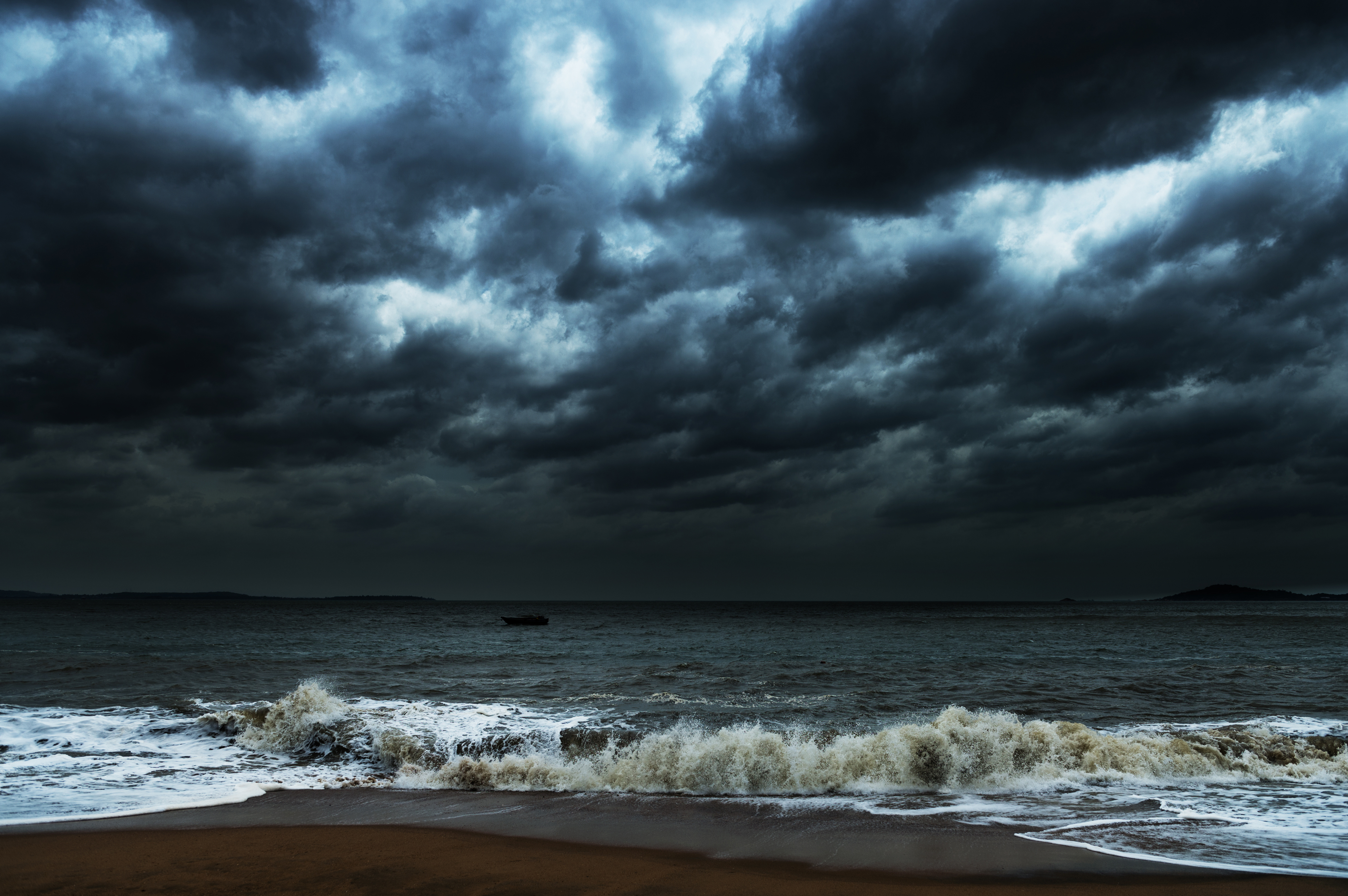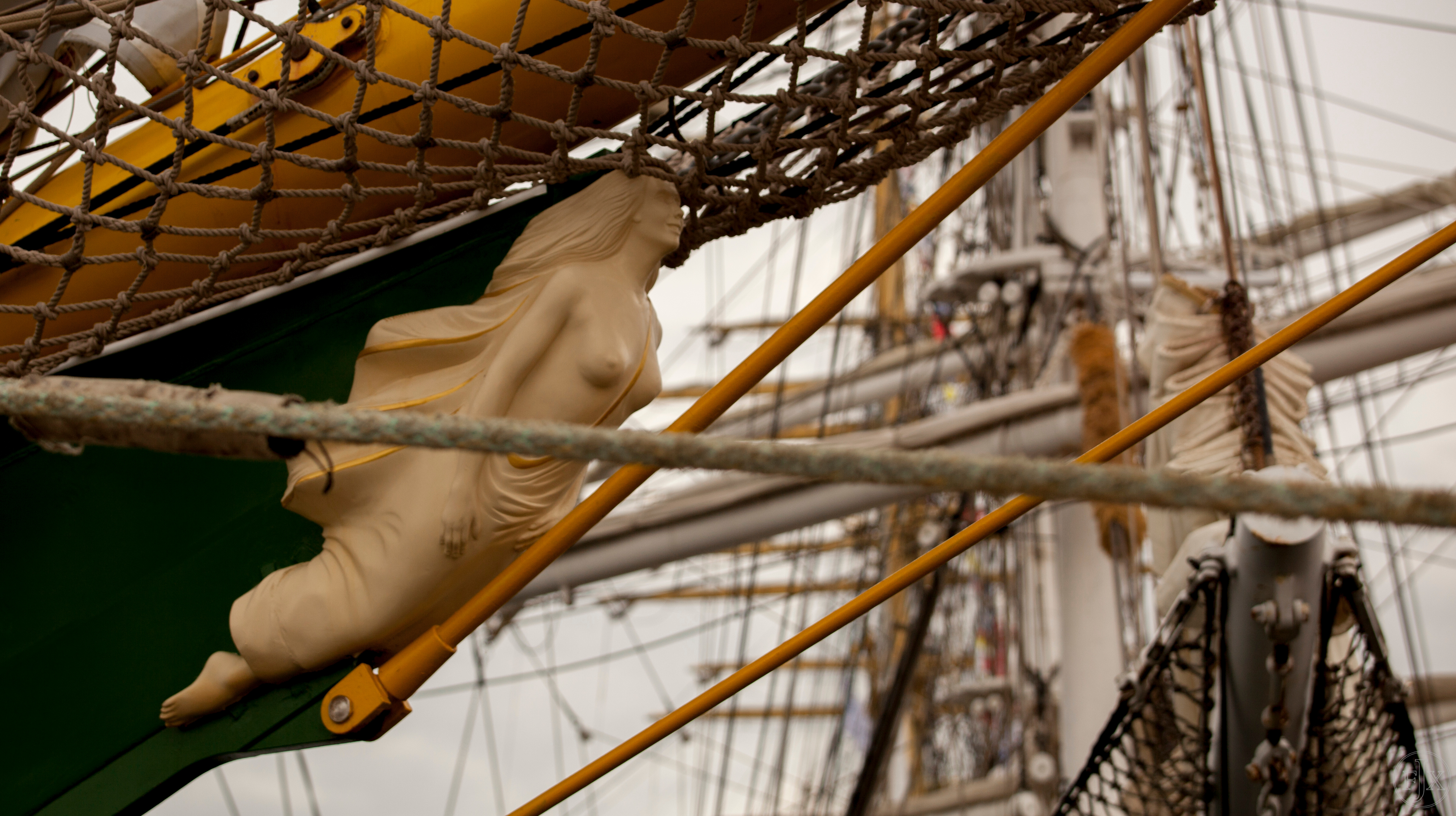

Superstitions have been ingrained in the traditions of people all over the globe. Throughout history, numerous beliefs and behavioral customs were rooted in an apprehension of the unknown and a profound faith in the mystical or the fortuitous.
The maritime realm was by no means exempt from these deeply held superstitions, as those who ventured into the vast expanses of the sea confronted an array of perilous encounters and challenges. In the spirit of the eeriest of celebrations, we aim to impart a touch of enigma by presenting a curated collection of our most captivating sailing superstitions from various corners of the world. While these beliefs may seem peculiar in today's context, it's entirely conceivable that remnants of these age-old customs still linger within the thoughts of contemporary sailors.
.

.
Sailors have long adorned their bodies with tattoos, believing that these symbols could safeguard them at sea. For example, they inked images of pigs and hens to invoke good luck, as these animals were known to survive shipwrecks due to their wooden crates, which floated.
Sailors thought that by tattooing these creatures on their skin, they could share in their resilience. Other symbols like compasses and nautical roses were etched to guide them home, while anchors were inked to prevent drifting away from their ships.
.
Friday's reputation as an unlucky day transcends cultures and extended to sailors who regarded it as a day of bad omens due to its association with the crucifixion of Jesus Christ.
Thursday, named after the god of storms, Thor, was another day deemed ill-fated for setting sail. In contrast, most superstitious sailors believed that the only auspicious day for embarking on a journey was Sunday.
.
One of the most enduring sailing superstitions revolved around the belief that women on board brought bad luck. Sailors thought that women distracted them from their duties, angering the sea and inviting its vengeance upon the ship.
Paradoxically, a naked woman on board was believed to bring good fortune, with the power to "calm the sea," a belief reflected in the figureheads often featuring topless female figures.

.
Sailors firmly avoided whistling while at sea, fearing it would "whistle up a storm." To challenge the wind and invite a storm was considered a grave omen. Hence, whistling was strictly prohibited to ensure a safe voyage.
.
Sailors observed the adage, "Red sky at night, sailors delight. Red sky in the morning, sailors take warning." Red sunrises were regarded as ominous, heralding an approaching storm.
This superstition had some meteorological basis as red skies in the morning indicated moisture-bearing clouds that could signal the arrival of a storm, especially in mid-latitudes where winds typically travel from west to east.
.
Sailors believed that boats gained consciousness and soul once christened with a name. Changing a boat's name was considered bad luck, requiring a de-naming ceremony.
This ritual involved writing the boat's name on paper, placing it in a wooden box, and burning it, after which the ashes were scattered into the sea. Only then could a new name be bestowed upon the vessel, lest fate had other plans in store.
.
Perhaps the most peculiar of all sailing superstitions is the belief that bananas brought misfortune on board. This superstition can be traced back to the 1700s when many ships carrying cargos of bananas met ill-fated ends.
There are different theories behind this superstition, including the notion that fermented bananas emitted toxic fumes harmful to inhale. Another theory suggests that an exotic and venomous spider species could hide within banana bunches, delivering deadly bites to unsuspecting sailors.
.
.
Even though these superstitions can sound funny and weird to our modern ears, they were serious thoughts for people in the past and helped them to exorcise away many fears. The unknown can play tricky games with our minds, but one thing is true: we will never know if these superstitions were based on actual facts or not. Spooky enough?!
Do you have any superstitions while sailing?

Our regular email newsletters include information about our boats, holiday ideas, destination insights and cultural briefings. You can unsubscribe at any time and we'll treat your data with respect, never passing on your details to third parties. Find full details of our data management in our Privacy policy page
By signing up, I agree to Sailogy's T&C's and Privacy policy

Looking for inspiration for your next sailing holiday? Packed with insights on trending sailing destinations plus stories from expert sailors and first-timers, our brand new digital magazine - Magister Navis - will guide your way to your next sail.
View magazine